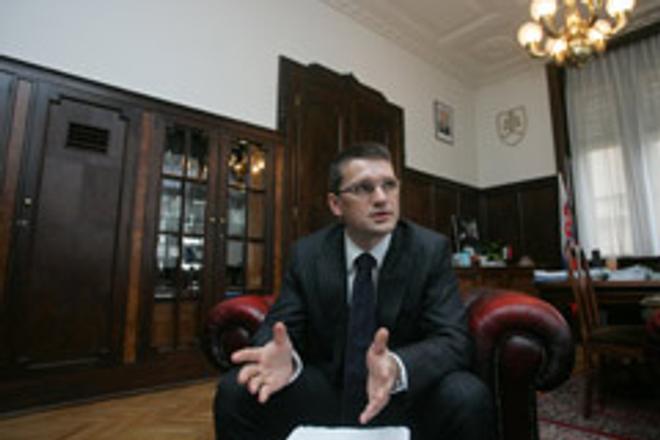The controversial draft Press Code remains on the parliamentary agenda, despite a vow from the political opposition that it will block approval of the EU’S Lisbon Treaty unless the wording of the bill is changed to bring it into line with democratic standards.
The bill has also been criticised by the Organization for Security and Cooperation in Europe (OSCE) and other foreign and local institutions. The OSCE objected principally to a proposed rule forbidding print media from promoting or trivializing various forms of hate, war or drug use, under penalty of a fine of up to Sk200,000 issued by the Culture Ministry. The organization also slammed a section giving politicians the right to demand room to respond to stories they objected to, regardless of whether the facts are correct.
Culture Minister Marek Maďarič (below) has said that such rules are standard in press acts throughout the EU.



 (source: SITA)
(source: SITA)